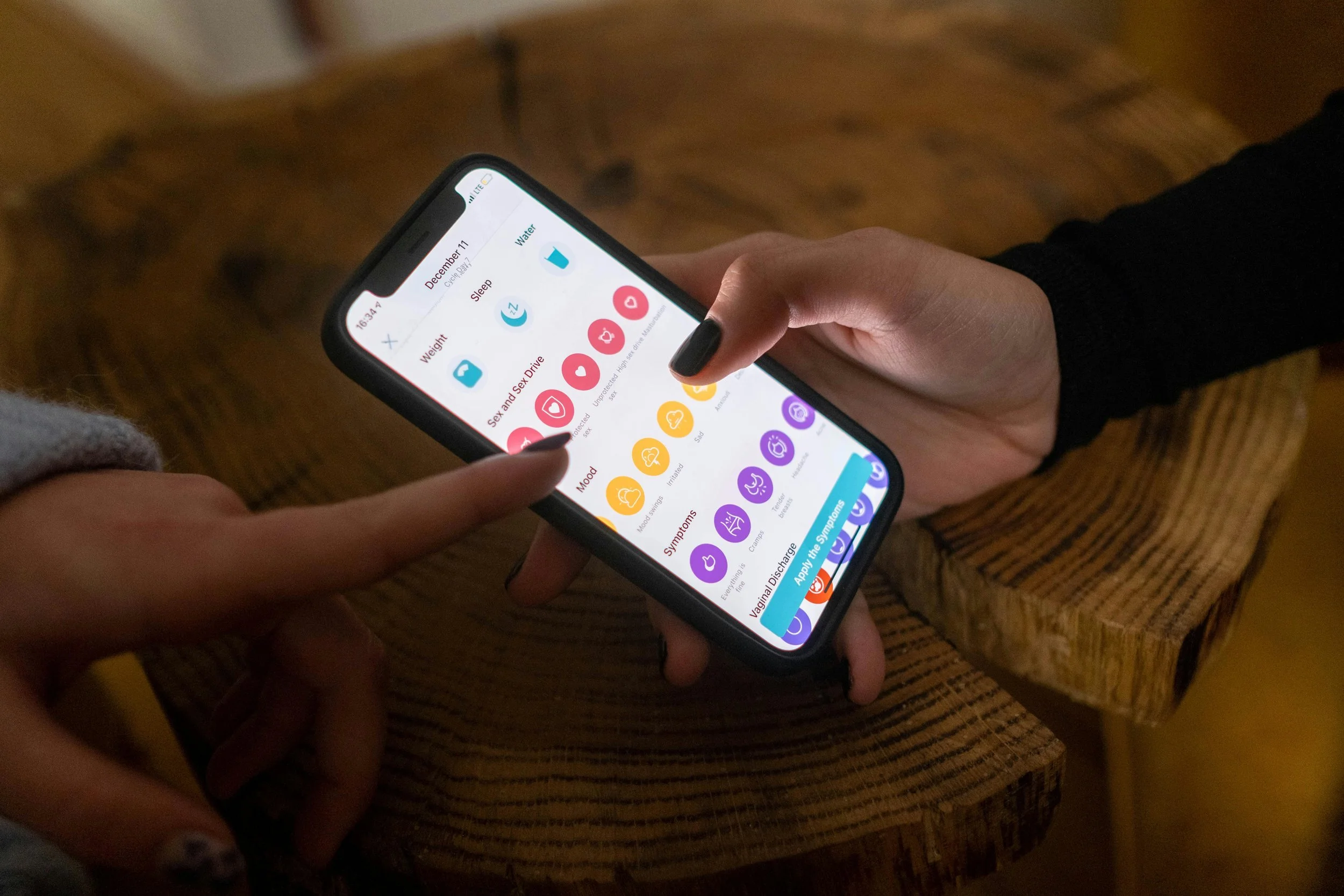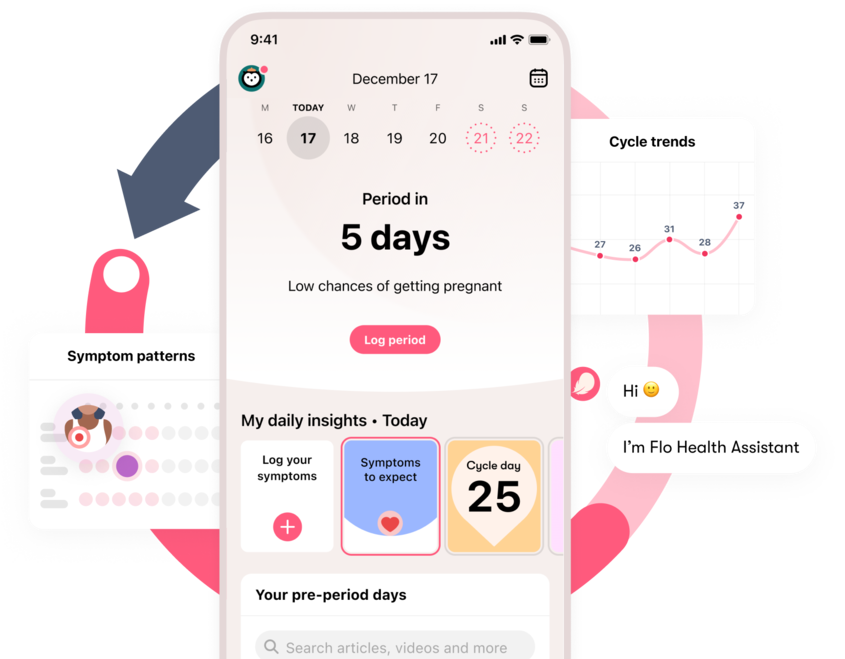Pros and Cons of Period Tracking Apps
By Zoe Pyfer
What are period tracking apps?
If you’re online, there’s a good chance you’ve seen an ad or two (or ten) for one of these apps.
Period tracking apps are designed to help you record symptoms related to your menstrual cycle and better understand your body. Some common ones you may have heard of are Flo, Clu, Femble, or Spot On. While period tracking apps are inexpensive, convenient ways to offer insight and education into an individual's cycle, there are a few things to consider before you download. Let’s break down some of the pros and cons!
Pros
Increased awareness
A common reason people use period trackers is to be aware of their cycle and hormonal fluctuations. Plus, many apps allow you to track other factors such as mood, digestion, skin and hair qualities, and sex drive. This can help you recognize patterns and feel more in tune with your body!
Convenience
Gone are the days of jotting down dates in a notebook! Apps make it easy to see data visually through charts and graphs- something other methods of tracking may not offer. Plus, it’s kind of fun!
Education
Most period tracking apps offer education for menstrual cycle, birth control, women's health, menopause, perimenopause, pregnancy, and more. They’re often offered in the form of blogs and articles within the app for users to access. This can be empowering, informative, and might normalize something you previously hadn’t seen before!
Inexpensive
Many tracking apps have a free version of their app. This makes it a great option for those looking to gain insight into their health without breaking the bank.
Cons
Privacy concerns
Period tracking apps can store sensitive health data, and unfortunately, they don’t always offer the same privacy protections as other medical apps. According to NordVPN, “most health apps that track menstrual cycles and reproductive health do not fall under the U.S. Health Insurance Portability and Accountability Act [HIPAA], meaning they’re exempt from health privacy laws”.
This raises red flags, especially with the potential use of this data in legal situations. As with many apps, there’s always the concern that companies might prioritize profits over privacy and sell your data. This is why reading those terms and conditions (as long and boring as they often are) is important!
Cost
While most of these apps are free initially, many require a paid version to access features beyond predicting when a period will start and end. Paid subscriptions often range between $9-16 per month, but yearly subscriptions are also available for lower monthly prices. Weigh the value of extra features and see what is worth it to you!
Inaccurate predictions/information
While period tracking apps aim to predict the start and end of your cycle, they’re not always spot-on. Inaccurate predictions can (understandably) lead to feelings of frustration or anxiety, especially if you’re relying on them to help plan around your cycle. It’s important to keep in mind that some of these apps, like many things on the internet, may not be made by medical professionals. So, if you have questions about inaccuracies you see on your app or online, feel empowered to ask your provider!
Final Thoughts
When it comes down to it, period tracking apps are an easy, accessible way to learn more about your body and track your health. Whether you’re looking to better understand your cycle, manage your symptoms, or simply keep a record, there is probably an app out there that fits your needs.
Just remember to consider the potential privacy concerns (as with any app)!
And, if predictions aren’t always spot-on, remember to give your body some wiggle room! You go through a lot each month, and it’s completely normal to experience changes in your cycle due to any number of factors! If there is anything you are concerned about, it never hurts to check in with a provider!



